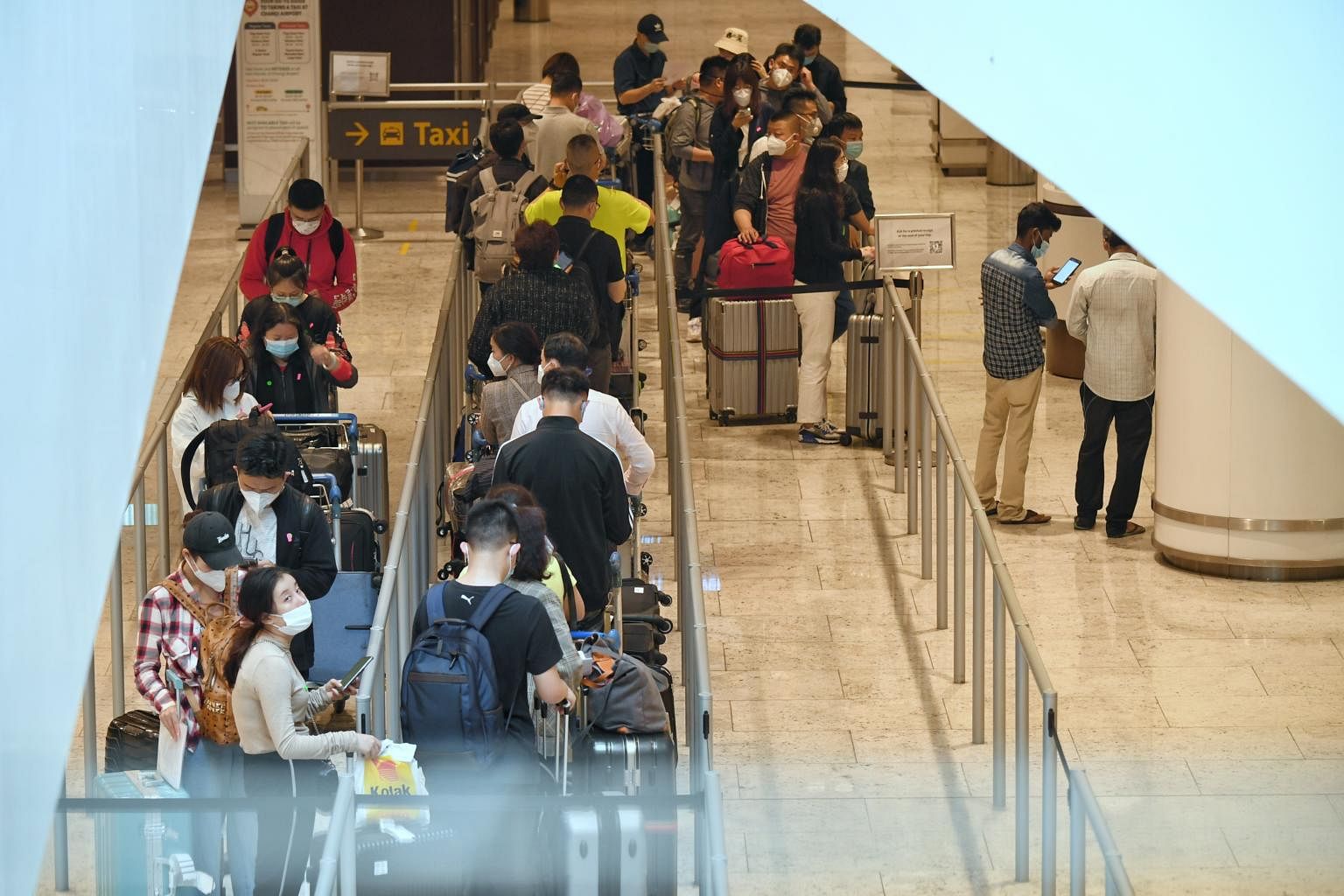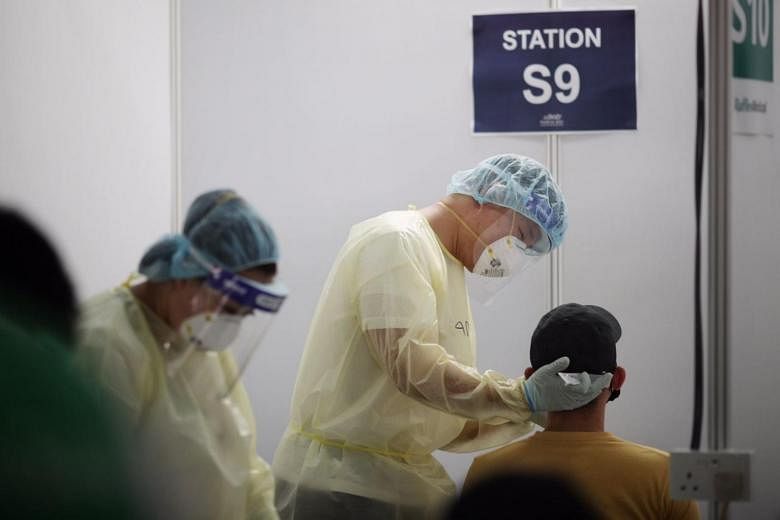SINGAPORE - As at the end of May, 550 Covid-19 cases in Singapore were infected with the Delta variant of the coronavirus first detected in India.
This figure comprises 428 local and 122 imported cases, the Ministry of Health (MOH) told The Straits Times.
It did not say when the first case was detected but an infection on April 28 was later attributed to the Delta variant or B16172.
The Delta variant is considered more easily transmitted from human to human, and was what fuelled the massive spread of the virus in India.
This variant was first picked up in India last October, but is believed to have made its way to Singapore only recently.
On May 4, MOH said in a press release that there were seven local cases infected with the Delta variant in Singapore. Last month, Singapore saw a total of 906 Covid-19 cases, of which 524 were local community infections.
The Delta variant is also believed to have sparked the Tan Tock Seng Hospital (TTSH) cluster, which was on June 6 reported as closed after no new transmissions were linked to it for 28 days.
Three deaths were linked to the cluster, including an 86-year-old Singaporean woman who died on June 7 from complications due to Covid-19.
An MOH spokesman told ST that variants are detected through viral genomic sequencing.
This is done at the National Public Health Laboratory at the National Centre for Infectious Diseases for all confirmed Covid-19 cases, she said, unlike other countries which typically sequence a smaller proportion of their confirmed cases.
MOH figures also show that the number of local Delta variant cases in Singapore is the highest caused by a variant of concern, among four such variants that have been detected here.
Variants of concern are more easily transmitted from person to person.
As at May 31, a total of 449 local cases of infection involve a variant of concern. They include:
- 428 people infected with the Delta variant
- Seven people infected with the Alpha variant, first detected in Britain
- Nine people infected with the Beta variant, first detected in South Africa
- Five people infected with the Gamma variant, first detected in Brazil
"But we have adapted our measures accordingly and the number of locally transmitted cases has decreased over the last two weeks," the MOH spokesman said.
"Studies are ongoing to get a more complete understanding of these variants and we will adjust our strategies as more information is made available."
Singapore has stepped up its testing, contact tracing and vaccination programme to keep the situation under control, the spokesman added.
Genomic sequencing refers to the technique used by public health authorities and researchers to "read" the genetic sequence of a pathogen.
While the genetic code of the pathogen that causes Covid-19 is largely the same, variants will show slight differences in their genetic code.
Since this sequence is unique to each variant, this technique allows the authorities and scientists to identify them.
Associate Professor Raymond Lin, director of the National Public Health Laboratory, said Singapore's sequencing efforts have been focused on helping to determine the chain of transmission leading to clusters of cases.
"By understanding that, we try to interrupt or reduce such transmission," he said.
Dr Sebastian Maurer-Stroh, executive director of the Agency for Science, Technology and Research's Bioinformatics Institute, added that the high frequency of the Delta variant in Singapore is to be expected.

"There was one big cluster of the Delta variant locally, and many regional travellers carry the Delta variant, so the relative frequency is high in Singapore," he said. In Singapore, the variant surfaced in the two biggest community clusters in recent months - in Changi Airport and Tan Tock Seng Hospital.
Among the seven Delta Covid-19 cases reported in Singapore as at May 4, five were part of the TTSH cluster - which had by then grown to include 40 hospital staff, patients and their relatives.
Dr Maurer-Stroh said that relative frequencies in small countries with few cases are often biased towards one variant.
"As clusters are controlled better, the number of cases, and hence genomic sequences, is reduced until only one virus genome is reported," he said.
"A rise in relative frequency accompanied by reduced case numbers in Singapore, which has a strong surveillance system, actually shows success in controlling the virus," he added.












